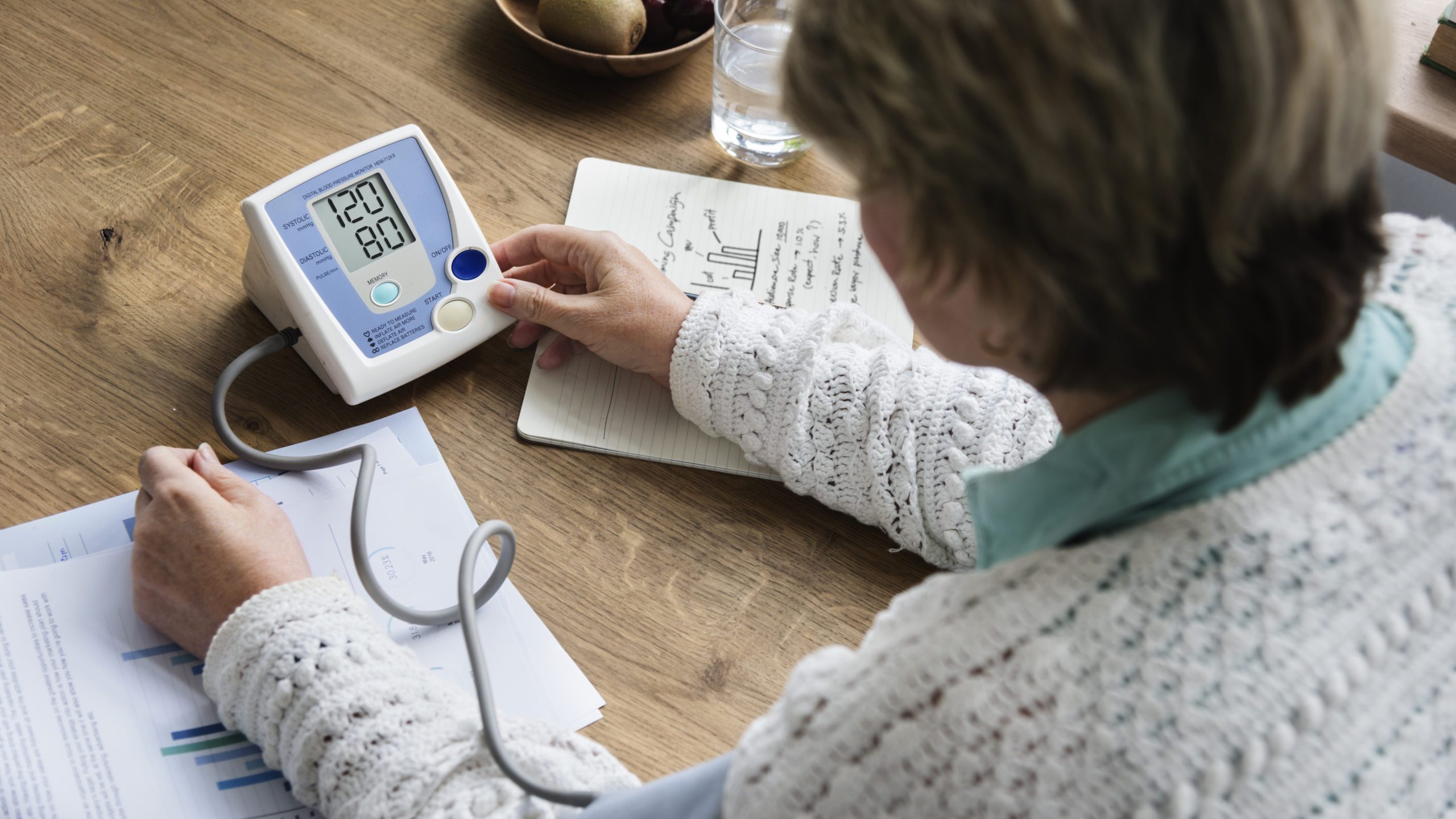You might have often heard that someone has high or low blood pressure. Maybe you even have experienced that yourself. But what exactly does it mean, and how bad is it for your health? Let’s first understand what blood pressure is. Your heart constantly pumps blood through arteries, which carry blood from the heart to other parts of your body. When it is happening, blood puts pressure on the walls of arteries. That is, it creates blood pressure. It is usually measured using two values: systolic and diastolic blood pressure. The first number measures pressure when your heart beats, the second – when the heart rests between beats.
Normal blood pressure is considered to be less than 120/80 mmHg. It can change during the day depending on your activities. However, some people constantly have measurements higher than the normal value. In that case, it may result in a diagnosis of high blood pressure called hypertension. If you have hypertension, you might not even know about it because it usually does not have any signs or symptoms. Therefore, measuring your blood pressure is the only way to figure it out. You can do that at a doctor’s office, pharmacy, or with a home blood pressure monitor that you can use yourself. Remember to consider some factors that may affect your blood pressure. Smoking, consuming alcohol or caffeine, physical activity within 30 minutes of measurement may lead to higher results. Being nervous or even crossing your legs can make your blood pressure go up.
High blood pressure can affect your health in multiple ways. It can cause significant damage to organs like your heart, kidneys, brain, and eyes. It can also make arteries less elastic, which decreases blood flow and oxygen supply. If the blood supply to the brain is disrupted, it can lead to a serious problem such as stroke. In addition, reduced blood flow can cause chest pain, heart attack, or heart failure. According to a U.S. survey in 2017-2018, 45.4% of adults had hypertension, with a higher percentage for men than women. Prevalence increased with age: 22.4% (aged 18–39), 54.5% (40–59), and 74.5% (60 and over).
Other medical conditions, your lifestyle, and your family history can affect the risks of developing hypertension. About 6 out of 10 people who have diabetes also have high blood pressure. Having obesity or overweight puts your heart and blood vessels under additional stress. Managing one condition can help to decrease the chances of developing the other. Unfortunately, factors like family history and age cannot be changed. Still, you can significantly lower the risks by taking other factors under control.
A diet plays an essential role in dealing with hypertension. Food too high in sodium and too low in potassium increases your risk of developing the condition. Sodium is an element in table salt, which is present a lot in processed foods. Therefore, it is healthy to reduce its consumption and add to your diet foods rich in potassium, such as bananas, beans, yogurt. Alcohol and tobacco use are also major risk factors that should be taken under strict control. Regular physical activity can as well help keep your heart and blood vessels in good shape and lower your blood pressure. Another thing to consider is getting enough sleep. It is important to your overall health and is essential for keeping the cardiovascular system healthy.
The first step for managing hypertension is to keep track of your blood pressure values. It will help you understand the causes of elevated blood pressure and find the best way to treat it. Consult with your health care professional to obtain the required medicines. There are various types of drugs that can help to lower blood pressure. Some make your body lose more water; others relax your blood vessels or make your heart beat with less force. Either way, it is crucial to take medications exactly how your doctor told you to do so. Stopping the use of your prescribed medicines without reason can lead to undesired consequences.
Overall, hypertension is a widespread health condition. It is sometimes called a ‘silent killer’ because it may have no symptoms. Therefore, early detection can be vital in order to avoid any health complications.
More details:
Prediabetes and measures of prophylaxis
Differences between type 1 and type 2 diabetes
Causes, mechanisms of the disease development and symptoms (Diabetes mellitus type 1)
Causes, mechanisms of the disease development and symptoms (Diabetes mellitus type 2)
















Leave a Reply
You must be logged in to post a comment.